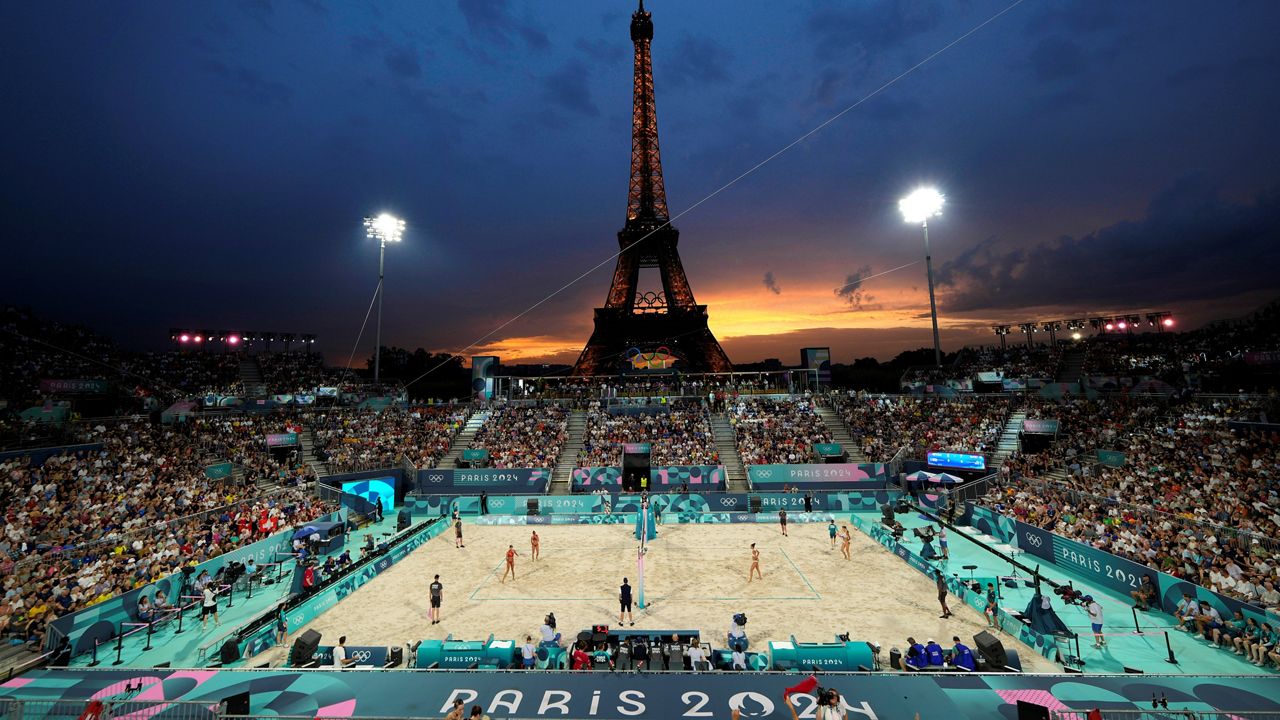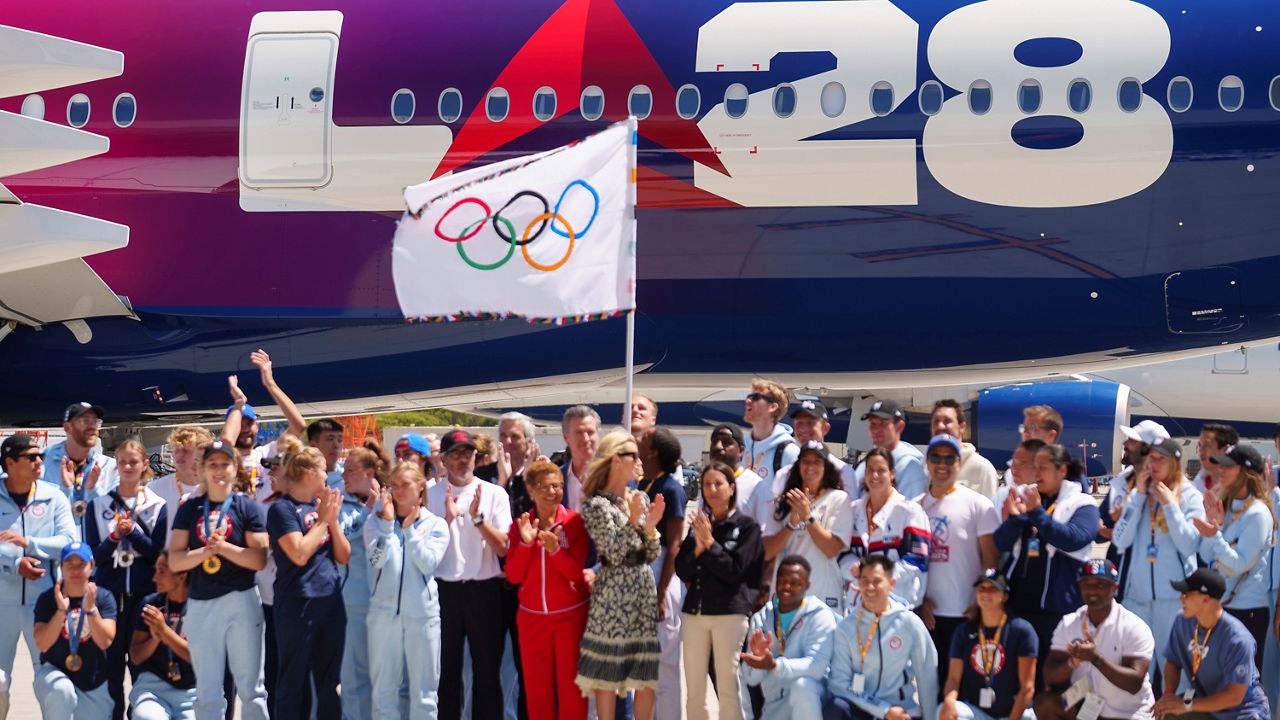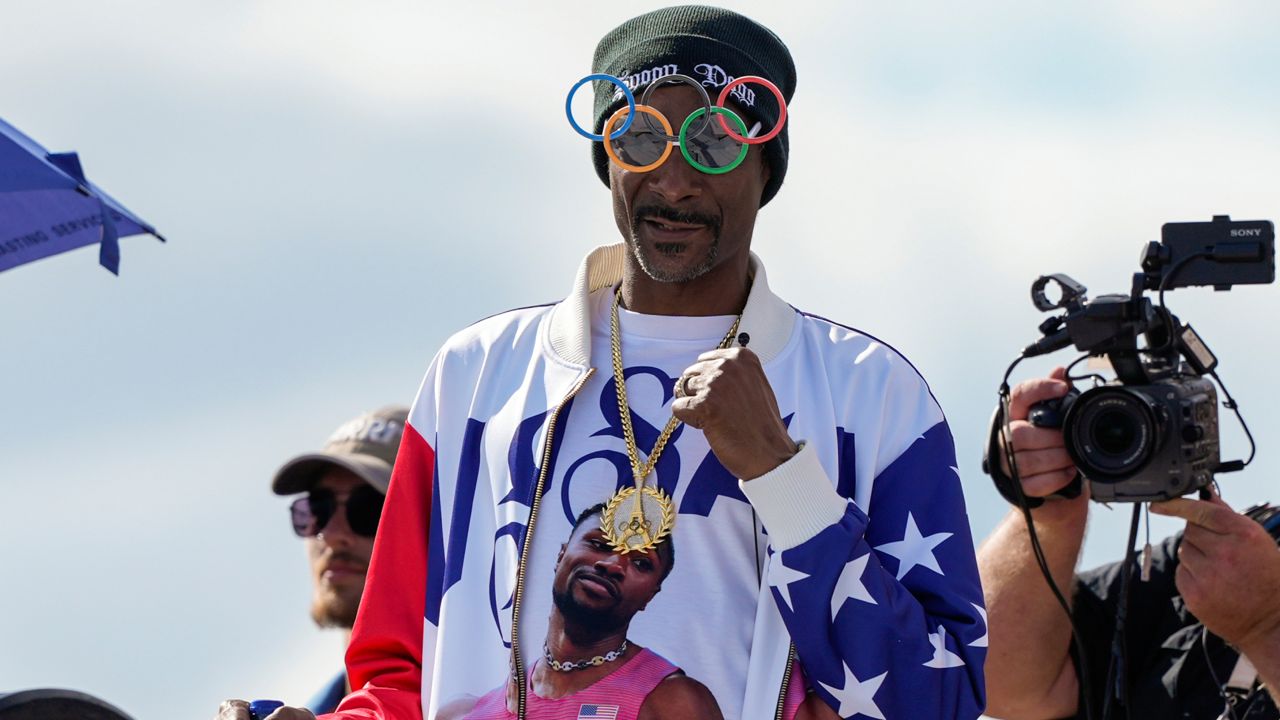INGLEWOOD, Calif. — Paralympic athletes, like Olympians, are at the top of their game, and among those competing this year is Jamal Hill from Southern California.
Hill has been kickflipping and swimming all his life. Lately, he has been getting in his laps six days a week at a Pasadena pool before work. He said the first time he swam, he "just fell in love." But Hill said that much like relationships, it hasn't been an easy road.
"Kind of like that first love, that you have the on-and-offs with," he said. "Until one day you just say, 'you know what, let's just get married.'"
Hill committed to going to the Olympics for swimming because of his love for the sport, and another reason.
"When I'm swimming, I can't trip on the ground," he said, laughing. "That's a good one."
It would be hard for anyone to figure out Hill has a disability watching him swim or walk outside of the pool. It's a disability Hill said he used to hide.
"Kind of felt like people wouldn't understand because it didn't fit the stigma of disability. I didn't have a limb amputation," he said. "I wasn't visually impaired or wearing a hearing aid."
His disability started when he was 10-years-old at Thanksgiving dinner. Hill said that at first, during the car ride to a relative's home, his left arm fell asleep. He said that when he was playing with his cousins, his right arm fell asleep. When the family sat down for dinner, Hill said he lost the feeling in his legs.
"I nudged my dad, 'Hey, I'm not able to pick up my fork and spoon. I can't even move right now,'" he recalled.
Hill said he went into temporary paralysis. He was diagnosed with Charcot Marie Tooth, a hereditary neurological condition that can result in progressive loss of muscle tissue and touch sensation. He explained he could feel if someone poked him but wasn't able to fire the message from his brain to his limbs to react.
Hill was forced to take a break from swimming. He said he had to relearn many things, including how to walk or hold or grasp objects. But Hill is likely one of the most determined people. He said there was a time when he ignored the signs from his body to slow down, that he wore the soles of his shoes down, determined to keep going, keep walking.
He eventually returned to the pool and started competing again with able-bodied swimmers. Hill now has 30% use of the muscles from his elbows to fingertips and 0% from the knees down.
And when he is in the pool, that means trying to keep his hands relaxed and "making sure my feet stay" and "don't run into each other."
Although he didn't talk about his disability and continued to compete against athletes without disabilities, his swim Coach Wilma Wong said she figured out Hill had something going on.
"He used to get out and drag his legs out like somebody who was in a wheelchair," she said.
She said that in competitions, people were beating him by more than a meter off the block diving into the pool because they had full use of their legs. But Wong was determined to help keep Hill's Olympic dream alive.
"That was the moment when we decided, 'well, maybe you should think about the Paralympics,'" she said.
Hill was game. Wong said Hill is such a coachable athlete and beyond hardworking.
"My heart was just bursting with joy and gratitude," she said of the moment when he sealed his spot on the U.S. Paralympics Team competing in Tokyo.
Hill's passion for swimming is also very much part of his life when he's out of the pool. He started a nonprofit to help others do what he loves. The nonprofit is called Swim Up Hill.
"The vision behind Swim Up Hill is to teach one million people annually how to swim in low-income communities around the world," he said, adding that the goal is to make swimming safe, simple and fun.
Before he took off to Tokyo, Hill was busy organizing some future events, punching in notes on his laptop outside a coffee shop in Pasadena. He said he hopes to prevent drownings through the events and build confidence and inspire others who may feel like they can't do something that they can.
"I specifically speak, and I work for the people who don't have a dream, who feel like they don't have hope, who feel like there isn't going to be an opportunity," he said.
Hill says life is about taking a chance in yourself and believing. He said if you keep at whatever your passions and goals are, though it may be challenging, "it's gonna be better than it is right now today." It's the motto his parents instilled in him.
Hill believed, and now the 26-year-old will be competing at his first Paralympic Games.
Hill will compete in the 100M freestyle at 5 p.m. on Aug. 27 on NBC Sports.











